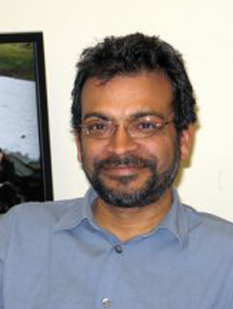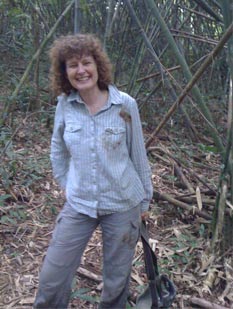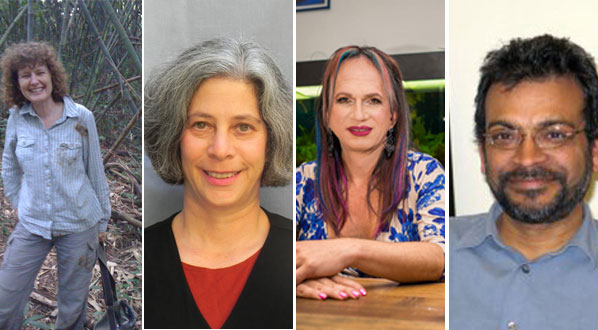ICCB 2017 Plenary Talks
- Greening Colombia's Peace Process: A way of thinking about environmental problems
- Is Restoration the New Conservation: Paradigms, Practice, and People
- Rethinking Conservation in an Uncertain World
- Perverse Conservation Outcomes of Rewards-Based Interventions
ICCB plenary talks start at 8:30am Monday - Thursday, 23-27 July in Gran Salon Barahona on Level 2B in the Cartagena de Indias Convention Center.
Greening Colombia's Peace Process: A way of thinking about environmental problems

Brigitte Baptiste graduated in Biology from the Pontificia Universidad Javeriana and Master in Latin American Studies from the University of Florida. She worked as a researcher at the Rural Studies Unit of the Faculty of Economics at Javeriana University, where she began her teaching career in the Master's programs of rural development and environmental management at the same university. She participated in numerous national projects of conservation and environmental planning, cultural landscapes, analysis of territorial transformation processes, ecological-economic history of productive systems, multicultural analysis of use and management of biodiversity, biocomplexity, bio-epheology, biopolitics. She is also interested in gender and culture themes. Since January 2011 she has been the General Director of the Institute for the Research on Biological Resources Alexander von Humboldt. Actually, she is a member of the Multidisciplinary Expert Panel of the Intergovernmental Science and Policy Platform on Biodiversity and Ecosystem Services (MEP / IPBES) representing Latin America.
Brigitte Baptiste es la Directora General del Instituto de Investigación de Recursos Biológicos “Alexander von Humboldt” de Colombia. Graduada en Bióloga de la Pontificia Universidad Javeriana y magíster en Estudios Latinoamericanos de la Universidad de Florida. Trabajó sus primeros años como investigadora en la Unidad de Estudios Rurales de la Facultad de Ciencias Económicas de la universidad Javeriana, donde inició su carrera docente en los programas de Maestría en Desarrollo Rural y de Gestión Ambiental de la misma universidad. Participó en numerosos proyectos nacionales de conservación y planificación ambiental, paisajes culturales, análisis de procesos de transformación del territorio, historia ecológico-económica de sistemas productivos, análisis multicultural de uso y manejo de biodiversidad, biocomplejidad, bioespeleología, biopolítica. Interesada adicionalmente en temas de género y cultura. Desde enero de 2011 es la Directora General del Instituto de Investigación de Recursos Biológicos Alexander von Humboldt. Actualmente es miembro del Panel Multidisciplinario de Expertos de la Plataforma Intergubernamental Científico-Política sobre Biodiversidad y Servicios de los Ecosistemas (MEP/IPBES) en representación de América Latina.
Is Restoration the New Conservation? Paradigms, Practice, and People
8:30-9:30 am
Gran Salon Barahona

Restoration and conservation are often viewed as contrasting approaches with distinct values, objectives, professional societies, conferences, and journals. But both approaches are required to protect and manage ecosystems and their unique biodiversity, and to ensure a flow of nature's contributions to people.
Robin Chazdon is professor emerita in the Department of Ecology & Evolutionary Biology at the University of Connecticut, USA. Her long-term collaborative research focuses on successional pathways, biodiversity in human-managed landscapes, and tropical forest restoration. She currently serves as the Executive Director of the Association for Tropical Biology and Conservation and Director of the NSF-funded Research Coordination Network PARTNERS (People and Reforestation in the Tropics), focused on understanding the social and ecological drivers of reforestation in the tropics. After 28 years as a university professor, she has taken on new positions as a Research Professor with the Tropical Forests and People Centre at the University of the Sunshine Coast, Australia and as Senior Research Associate with the International Institute of Sustainability in Rio de Janeiro, Brazil. She recently became a Senior Fellow with the World Resources Institute's Global Restoration Initiative. She is an author of over 140 peer-reviewed scientific articles and co-editor of two books on tropical forests. Her sole-authored book “Second growth: The promise of tropical forest regeneration in an age of deforestation” was published in 2014.
Perverse Conservation Outcomes of Rewards-Based Interventions
By Arun Agrawal, Ph.D
Wednesday 26 July 2017
8:30-9:30 am
Gran Salon Barahona

Arun Agrawal is a professor in the School of Natural Resources & Environment at the University of Michigan. He emphasizes the politics of international development, institutional change, and environmental conservation in his research and teaching. He has written critically on indigenous knowledge, community-based conservation, common property, population resources, and environmental identities. Since 2013, Agrawal has served as the editor-in-chief of World Development and his recent work has appeared in Science, PNAS, Conservation Biology, and Development and Change, among other journals. Preceding his work at U-M, Agrawal was educated at Duke University, the Indian Institute of Management, and Delhi University and has held teaching and research positions at Yale, Florida, McGill, Berkeley, and Harvard among other universities. Arun is the coordinator for the International Forestry Resources and Institutions network and is currently carrying out research in central and east Africa as well as South Asia.
Rethinking Conservation in an Uncertain World
8:30-9:30 am
Gran Salon Barahona

E.J. Milner-Gulland is Tasso Leventis Professor of Biodiversity in the Department of Zoology at the University of Oxford and Director of the Interdisciplinary Centre for Conservation Science. She has a particular interest in developing and applying methods for understanding and predicting human behaviour in the context of local resource use in developing countries, and improving the effectiveness of incentive-based mechanisms such as payment for ecosystems services and biodiversity offsetting, in the marine and terrestrial realms.
Her research group works at the interface of social and ecological systems, using a range of methodological approaches to address key issues in current conservation, including fieldwork and modelling in the ecological, social and behavioural sciences. It has three themes: understanding resource user incentives; planning for effective and socially just conservation; and accounting for social-ecological system dynamics. The group works in the terrestrial and marine realms, with practitioners who are implementing interventions, to ensure that they are designed, carried out and monitored in a way that leads to the desired outcomes from both conservation and social justice perspectives.




